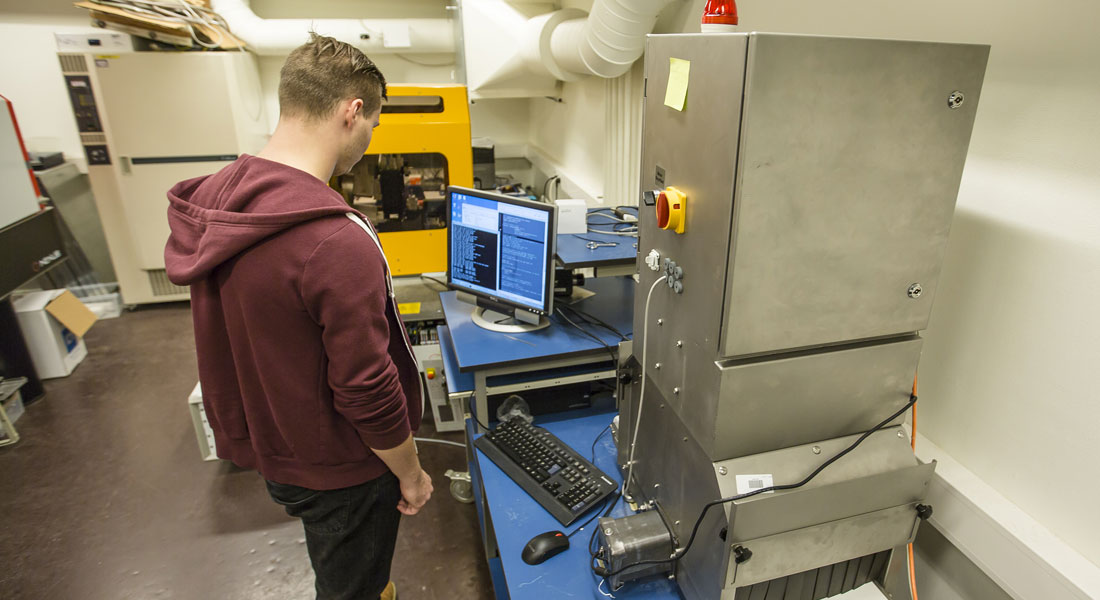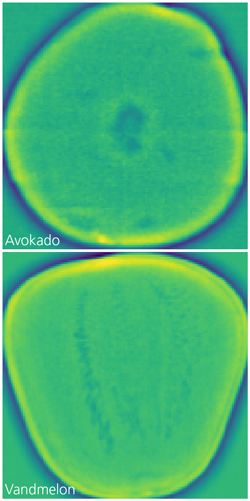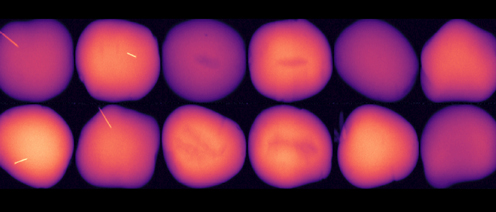Research project to develop better x-ray scanners to ensure the quality of everything from cold cuts to avocadoes
With an investment of 9 million kroner from the Innovation Fund Denmark and a total budget of 17 million kroner, researchers from the Niels Bohr Institute at the University of Copenhagen, together with three companies, will develop equipment and software in a four-year project o find defects and deficiencies in a variety of products. The project has a special focus on food and could reduce the need for recalling products.

X-ray inspection of various products, including food, is an old and well-established technology, but existing technologies require the creation of unique solutions for each product to be tested and for each possible defect and deficiency.
For example, one solution is used to detect whether a potato is hollow, while another solution is used to detect whether cold cuts are contaminated with metal shavings. This is one of the reasons that it is primarily expensive products with known types of defects that currently us X-ray inspection.
In the future, manufacturers, retailers and consumers could avoid having to destroy cold cuts that are contaminated with metal shavings or avocados that have gone bad. The new Danish project will develop new dynamic X-ray technology, which can easily vary the X-ray energy and custom camera technology.

Top: The dark shadow indicates that the avocado will quickly rot. Bottom: A watermelon sold as seedless, the seeds are clearly visible.
Challenging to examine large quantities quickly
“We are developing algorithms with artificial intelligence that can choose the optimal X-ray energy and the right camera with the right resolution. The goal is to eliminate the need for developing unique software solutions for each product, just letting the system automatically learn to correctly recognise faulty products,” explains Professor Brian Vinter, who heads the eScience group at the Niels Bohr Institute.
“One of the major challenges is to get the X-ray sources and cameras to communicate with our algorithm at very high speed. For example, we are working on detecting hollow potatoes and here you have to inspect 22 tonnes per hour. Our plan is to create a hardware solution so that the image recognition takes place directly in FPGA-chips and then we do not have to have a large server standing out in production,” explains Brian Vinter and continues.
“When an X-ray inspection system can handle many types of foods, the price will also be lower. Therefore, he hopes that the fully developed inspection system will also eventually find its way to the supermarkets, where additional quality control checks can be done before the goods end up on the shelves.”

X-ray image of potatoes: First four potatoes with needles in them, then four with holes in them and finally four potatoes that are absolutely perfect.
It is possible to complete the project because the participating partners possess all of the necessary competencies from production of X-ray sources and X-ray cameras to system integration and artificial intelligence. The Århus based Magnatek will be responsible for developing a new type of X-ray source, while QTechnology from Valby will develop a number of cameras for the project. Newtec in Odense is responsible for system integration and the eScience group at the Niels Bohr Institute at the University of Copenhagen is in charge of software development. The Danish Technological Institute is responsible for validating the final solution.
See also:
Contact
Niels Bohr Institute: eScience, Professor Brian Vinter, University of Copenhagen, Phone: 28 75 14 21 Email: vinter@nbi.ku.dk
Newtec: Maria Birch Sterregård, Phone: 63 15 48 83
Magnatek: Henrik Ibsen, Phone: 38 86 01 42
QTechnology: Kristian Glöde Madsen, Phone: 36 16 65 37
